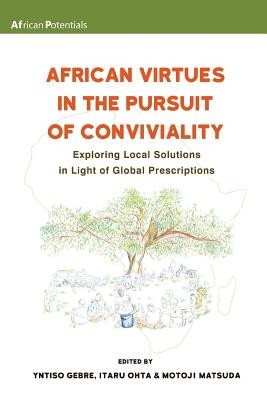
- We will send in 10–14 business days.
- Publisher: AFRICAN BOOKS COLLECTIVE
- Year: 2017
- ISBN-10: 9956764175
- ISBN-13: 9789956764174
- Format: 15.2 x 22.9 x 2.4 cm, minkšti viršeliai
- Language: English
- SAVE -10% with code: EXTRA
African Virtues in the Pursuit of Conviviality (e-book) (used book) | bookbook.eu
Reviews
Description
African societies have rich histories, cultural heritages, knowledge systems, philosophies, and institutions that they have shaped and reshaped through history. However, the continent has been repeatedly portrayed negatively as plagued by multitudinous troubles: famine, conflict, coup, massacres, corruption, disease, illiteracy, refugees, failed state, etc. Even worse, Africans are often viewed as incapable of addressing their problems on their own. Based on such erroneous perspectives and paternalism, exogenous solutions are prescribed, out of context, for African problems. This book sheds light on the positive aspects of African reality under the key concept of 'African potentials'. It is the product of sustained consultation over a five-year period between seasoned African and Japanese anthropologists, sociologists and scholars in other areas of African studies.
EXTRA 10 % discount with code: EXTRA
The promotion ends in 21d.18:38:31
The discount code is valid when purchasing from 10 €. Discounts do not stack.
- Publisher: AFRICAN BOOKS COLLECTIVE
- Year: 2017
- ISBN-10: 9956764175
- ISBN-13: 9789956764174
- Format: 15.2 x 22.9 x 2.4 cm, minkšti viršeliai
- Language: English English
African societies have rich histories, cultural heritages, knowledge systems, philosophies, and institutions that they have shaped and reshaped through history. However, the continent has been repeatedly portrayed negatively as plagued by multitudinous troubles: famine, conflict, coup, massacres, corruption, disease, illiteracy, refugees, failed state, etc. Even worse, Africans are often viewed as incapable of addressing their problems on their own. Based on such erroneous perspectives and paternalism, exogenous solutions are prescribed, out of context, for African problems. This book sheds light on the positive aspects of African reality under the key concept of 'African potentials'. It is the product of sustained consultation over a five-year period between seasoned African and Japanese anthropologists, sociologists and scholars in other areas of African studies.


Reviews